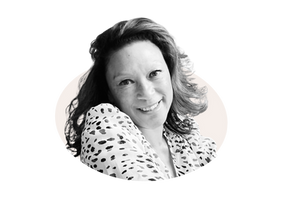How Founder Shannon Salentine Empowers Changemakers to Lead Without Burning Out
- Editorial
- Jun 2, 2025
- 4 min read

Shannon Salentine, the Founder and Executive Leadership Coach of Lead for Good, helps changemakers increase their impact without burning out or compromising their integrity.
After spending over 20 years of studying, living, and working around the globe, Shannon realized that serving others was more than just a career—it was her calling. Inspired by her family’s history of service and entrepreneurship, she founded Lead for Good to support those who dedicate their lives to making the world a better place. Through customized coaching and consulting, Shannon equips changemakers with practical tools and strategies to lead effectively without sacrificing their well-being or missing out on life experiences. For Shannon, success is more than financial milestones; it’s about being able to invest in herself and others, fostering growth and mutual support.
During our conversation, Shannon shared how her journey shaped her definition of success, the unexpected lessons she’s learned as an entrepreneur, and her vision for reimagining leadership as a human-centered force for good.
Tell us the story behind your company’s founding. How and why did you start working on Lead for Good?
Over more than 20 years, I’ve been on a journey to find my own way. I’ve studied, lived, and worked all over the world. In my ongoing determination to find a balance between my professional and personal life, I discovered that they are one in the same. When we are driven by a clear purpose to make a difference in the world, our life choices follow.
There was never a time in my life when I thought I would do something other than serve others. That’s where I hung my heart. Every time I committed to working in service of others, I felt a sense of fulfillment. I know many of you feel the same way. So, I started my own coaching practice to champion others with the belief that with a clear vision, tools, and practices, we can do the work we want to do in the world without burning out, missing out on life experiences, or compromising our integrity.
What I’ve learned along the way is that society doesn’t do enough to support our changemakers. Leading for good requires us to reimagine, reconnect, and recommit to supporting those who are taking the steps to make a difference in our world.

In what ways has your upbringing or past experiences contributed to how you operate as an entrepreneur?
I’ve always been surrounded by people who were willing to carve their own path and deeply driven to help others. The latter was infused in me from a young age as I watched both my grandmother and my mom work as nurses. For them, nursing wasn’t just a career—it was a way of life. I started volunteering at a young age and considered service a core value and a guiding force in my professional journey. My experience with entrepreneurship started with my dad, who at a young age and with a young family, decided to go out on his own to start a successful family business. That same entrepreneurial spirit was reinforced by my husband, who—despite my initial doubts—has managed the four-hour work week.
What’s been the most unexpected part of your entrepreneurial journey?
Although working solo is tough, I learned early on to surround myself with people who help me remember that the benefits of working for myself will always outweigh the risks. Some of the most impactful things I’ve learned are how to recognize the value of my time, my worth, and my voice. This level of self-actualization and agency is the most rewarding part of being an entrepreneur, and it was completely unexpected.

Has your definition of success evolved throughout your journey as a founder?
When I first started my business, my benchmark of success was solely focused on a revenue goal. As I progressed, I realized that success also means working with incredible clients doing incredible things, working fewer than 20 hours a week, making a six-figure income, and having the ability to invest in myself and others to grow, support, and activate changemakers.
How have you grown as a leader since starting Lead for Good? What experiences have contributed to this growth?
I’m constantly reminding myself of my own values, both as an individual and as a leader in this work. It’s easy to get swept up into thinking that I’m not doing enough, that the rug will be pulled out from under me, or that I’m “better off” and more secure working for someone else.
But the truth is, this capitalist narrative prevents us from recalling the reality—here in the U.S., we are never truly in control of our employment or our livelihoods. So, in times when I question whether I made the right move, I remind myself that what the world needs is more businesses led through and by a more feminist approach—an approach that is emergent, generative, and human-centered.
"What the world needs are more businesses led through and by a more feminist approach—an approach that is emergent, generative, and human-centered."
What would you tell your younger self if you were to start your entrepreneurial journey all over again?
What I’ve learned over my six-plus-year journey into entrepreneurship is the importance of making a plan while being willing to go slow for the sake of learning and integrating what I need to meet my value-aligned goals.
My husband’s support was invaluable, especially when it came to financial planning before I left my full-time job. We took a three-year approach that allowed me the security and freedom to only say yes to the work I wanted and to have the time to create the programs I felt passionate about sharing with the world.
I would tell my younger self that relationships—not social media, visibility, or large contracts—will be the most sustainable driver of my business.











